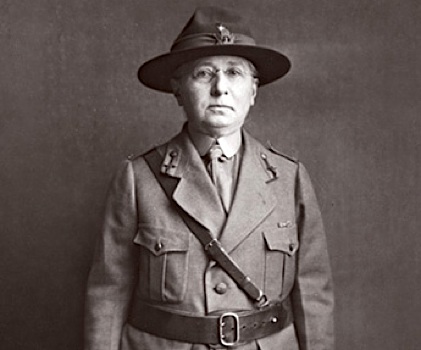 photo of Clelia Mosher from the Stanford University Archives
photo of Clelia Mosher from the Stanford University Archives
The March/April edition of Stanford Magazine has a fascinating article on Dr. Clelia Mosher, a Victorian-Era scientist, researcher and Stanford professor who conducted the first known sex surveys of women, decades before Kinsey (who’s considered the pioneer of sex research). Even though the sample size is small and represents mostly white, middle-class, educated women, it still goes far in revealing that Victorian repression was an ideology that was pushed on women rather than a reflection of actual views or practices of the time. Below are some highlights from the piece, but the whole thing is worth a read if you’ve got the time.
On Mosher’s take on menstruation:
But it wasn’t until after 1896, when Mosher had moved on to Johns Hopkins to obtain her MD, that she analyzed her data. Again, she blamed nurture over nature: Painful menstruation, she concluded, was in most cases caused by inactivity, poor muscular development and the very idea of “inevitable illness.” Sending girls to bed to dwell upon their discomfort, Mosher wrote, “produce[s] a morbid attitude and favor[s] the development and exaggeration of whatever symptoms there may be.” Mosher was not subtle about her motivation for seeking to discredit functional periodicity. “Equal pay for women means equal work; unnecessary menstrual absences mean less than full work,” she wrote. Convinced that women should stay active throughout their periods, Mosher even invented abdominal exercises—dubbed “moshers”—to counteract menstrual pain.
















